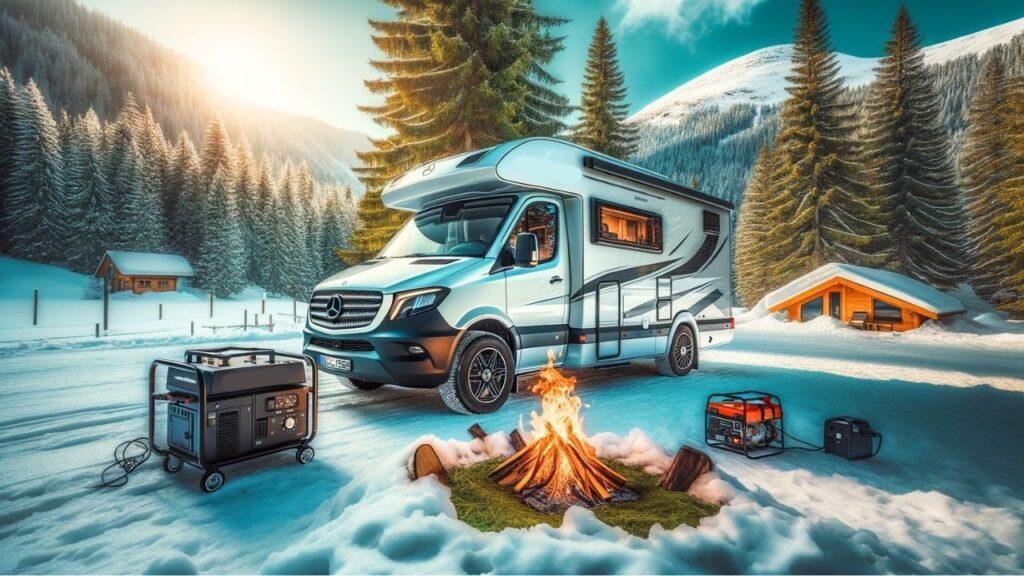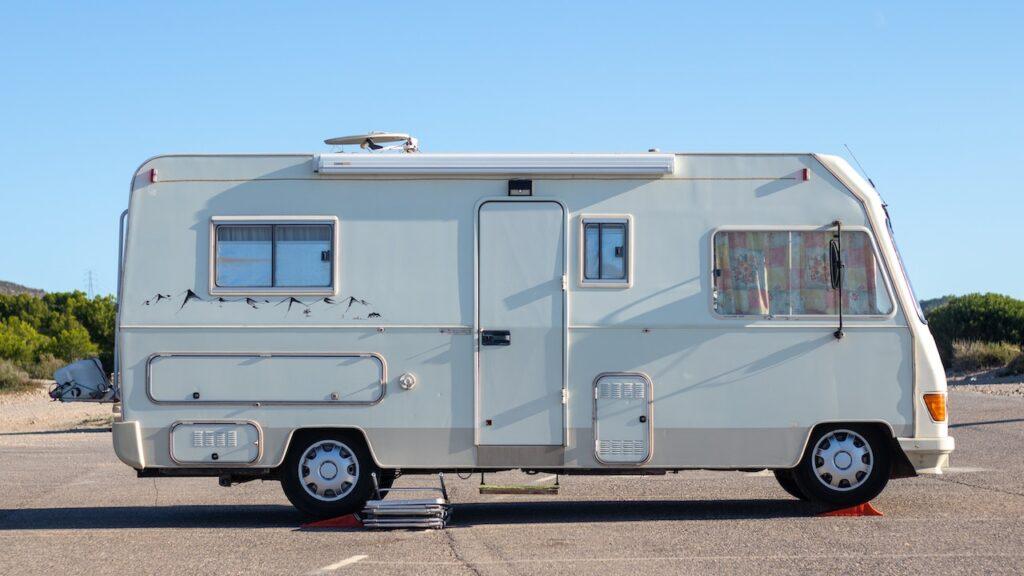
Imagine hitting the road in your RV, the landscape changing with every mile, and having the comfort of a reliable hot shower at the end of the day—this is where electric vs propane tankless water heaters for RVs come into play. These nifty devices are a game changer for RV owners, providing endless hot water without the bulk of traditional tank heaters. Diving into the types, electric models offer simplicity and ease of use, drawing power directly from your RV’s electrical system, which makes them especially handy if you frequently camp at sites with electrical hookups.
On the other hand, propane models has robust performance and can heat water quicker, a boon when electricity is scarce and you’re parked in the wild. Choosing the right type isn’t just about convenience; it’s essential for matching your travel lifestyle, ensuring you never compromise on comfort, no matter where your journey takes you.
Main Considerations Before Choosing a Water Heater for Your RV
Before you dive into the decision between electric vs propane tankless water heaters for RVs, it’s crucial to assess a few key aspects that will guide your choice. This isn’t just about picking a water heater; it’s about choosing a travel companion that fits perfectly into your RV lifestyle.
Space and Installation Requirements
Every inch counts in an RV, making the compact size of tankless water heaters a huge plus. Electric models might require less room for associated hardware compared to propane types, which need proper ventilation and space for safe gas storage. Think about where you’ll install your heater and whether your RV layout can accommodate it without hitches.
Fuel Availability and Cost Considerations
Fuel availability is a decisive factor; while electricity is ubiquitous in urban campsites, more remote areas might leave you relying on propane. Furthermore, cost plays a significant role. Propane can be more economical over time, especially if you’re frequently off the grid. However, electric heaters eliminate the need for constant fuel refills, which adds convenience.
Safety Features and Maintenance Needs
Safety cannot be overstated when it involves any device that heats and stores fuel. Electric heaters are generally seen as safer due to their lack of combustion. Propane heaters, while safe when installed correctly, require regular checks on gas lines and vents. Maintenance needs also differ; electric units are usually set and forget, while propane units need more frequent attention.
Transitioning smoothly from these foundational considerations will lead us directly into how each type of heater operates within the confines of an RV setting.
How Do Electric Tankless Water Heaters Work in RVs?
Diving deeper into the realm of electric tankless water heaters for RVs, it’s crucial to understand their operational mechanism to see if they align with your RV’s power capabilities and your travel needs. Electric tankless water heaters, a marvel of modern engineering, operate on a straightforward principle but bring sophisticated technology to the comfort of your RV.
Operational Mechanism
Electric tankless water heaters function by using high-powered electrical elements to instantly heat water as it flows through the device. This means no waiting for a storage tank to warm up; instead, cold water enters, passes over heating elements, and exits as hot water in a continuous stream as long as the tap remains open. The design not only saves space by eliminating the need for a bulky tank but also increases efficiency as energy isn’t wasted in heating a tank that might not be fully utilized.
Advantages in RVs
The appeal of electric models lies in their unmatched convenience and ease of use. They are generally easier to install than propane models, often requiring just a connection to the RV’s electrical system and the water supply. Maintenance is minimal because there are no gas lines to inspect and no vents to clear. Electric heaters are exceptionally quiet, a significant advantage in the confined space of an RV, enhancing your comfort without the constant background noise of a running heater.
Common Challenges
Despite their benefits, electric tankless water heaters do have drawbacks, primarily related to their high electricity demand. They require substantial power, which can be a challenge in an RV, particularly if you’re using other high-power appliances simultaneously. This can strain your RV’s electrical system unless you’re connected to a reliable external power source or have upgraded your RV’s generator or solar panel system to handle high loads, which can be a costly investment.
How Propane Tankless Water Heaters Operate in RVs
Switching focus to propane tankless water heaters for RVs, these units offer a dynamic solution for heating water that contrasts with the operation and requirements of electric heaters, catering to a different set of preferences and challenges.
Functionality of Propane Heaters
Propane tankless water heaters operate by igniting propane gas in a combustion chamber, a process that rapidly heats water circulating through adjacent coils. The instant heating capability of propane provides a continuous supply of hot water on demand, much like electric models, but with a different energy source. The combustion process is efficiently managed to maximize heat transfer and minimize waste, which is crucial in maintaining energy efficiency in an RV setting.
Benefits Over Electric
Propane heaters are often preferred for their speed and efficiency in heating water, which can be a significant advantage when multiple people need showers back-to-back. They are particularly useful in areas where electric power is limited or unreliable—common scenarios in more remote or rugged camping locations. Propane is also typically more cost-effective than electricity per unit of heat produced, making it an economical choice for frequent travelers.
Drawbacks to Consider
However, propane heaters come with their own set of challenges. They require installation with proper ventilation to safely remove combustion gases, a critical safety consideration that can complicate installation in smaller or more compact RV spaces. Regular maintenance is crucial to ensure connections are secure and there are no leaks, as propane is a combustible gas. These maintenance requirements, while manageable, do add an ongoing task to your RV upkeep checklist.
In both cases, the choice between electric vs propane tankless water heaters for RVs involves weighing each system’s benefits against its drawbacks. Electric models offer simplicity and ease of use, while propane models excel in efficiency and operational cost. Understanding these differences is key to making an informed decision that enhances your RV lifestyle and travel comfort, ensuring you always have the luxury of hot water wherever your adventures may take you.
Electric vs Propane: Energy Efficiency and Performance
When choosing between electric vs propane tankless water heaters for RVs, understanding their energy efficiency and performance is key to ensuring you get the most out of your investment. This goes beyond just getting hot water on demand—it’s about making your RV as energy-efficient and performance-oriented as possible.
Electric tankless water heaters are known mainly for their efficiency because they only operate when hot water is needed, thereby reducing the wasted energy associated with continuously heating a tank. However, propane models are not far behind; they also offer on-demand heating but are generally know for less efficiency due to the energy required to burn propane. Yet, in terms of energy output, propane can produce more heat per unit of fuel compared to electricity, which can make them more efficient in actual heat output.
The choice between electric and propane has significant implications for your RV’s power system. Electric models can draw a lot of power, especially in larger setups, which might require you to upgrade your RV’s electrical capabilities or depend heavily on external power sources. Propane heaters, conversely, only require electricity for the ignition system, thus putting less strain on the RV’s electrical system and preserving battery life for other uses.
Environmental factors play a crucial role in the performance of tankless water heaters. Electric heaters are highly effective in stable environments where power supply issues are minimal. In contrast, propane heaters perform better in varying climatic conditions, offering consistent service even in colder settings where electricity might be unreliable, making them ideal for adventurers exploring rugged terrains.
Cost Analysis: Upfront and Ongoing
Understanding the cost involved in choosing between electric vs propane tankless water heaters for RVs is essential for budget-conscious RVers who are keen on both initial savings and long-term gains.
Typically, electric tankless water heaters are less expensive to purchase and install compared to their propane counterparts, which may require additional expenditures for things like gas lines and ventilation systems. This makes the electric option more attractive if you’re looking to minimize upfront costs.
While electric heaters might have a lower initial cost, the ongoing operating costs can be higher depending on local electricity prices. Propane is often cheaper in terms of energy per BTU (British Thermal Unit), and may be more cost-effective over time, especially if you frequently travel to remote locations where electricity is a premium. Additionally, the maintenance costs for propane heaters, which involve checking and securing gas connections and ensuring proper ventilation, might add up, although these are generally not prohibitively expensive.
The break-even point—where lower operational costs of a propane system offset the initial higher cost compared to an electric system—can vary. For RVers who travel frequently and use their water heater extensively, propane might reach this point faster than expected. Conversely, for those who use their RVs less frequently or stay mostly in serviced campgrounds, electric could prove more economical over time.
Whether you lean towards an electric or a propane model will depend significantly on how you use your RV and where you plan to travel. Each system offers unique benefits and challenges, making it crucial to consider all factors to find the best fit for your RV adventures.
Lifespan and Durability of Electric and Propane Heaters in RVs
When you’re rolling down the highway, heading to your next adventure, the last thing you want to worry about is whether your electric vs propane tankless water heaters for RVs will stand the test of time. Let’s dive into how these heaters stack up in terms of durability and longevity.
Electric tankless water heaters typically have a longer lifespan, often ranging between 10 to 15 years with proper maintenance. This is mainly because they have fewer mechanical parts that can wear out over time. Propane models, while robust, usually have a slightly shorter lifespan of around 8 to 12 years due to the wear and tear of their combustion components.
Durability in tankless water heaters often hinges on regular maintenance and the environment in which they operate. Electric heaters are susceptible to scale buildup in hard water conditions, which can shorten their effective life if not regularly addressed. Propane heaters, on the other hand, require vigilant maintenance to ensure that the venting systems are clear and the burners are clean to avoid inefficiency and potential hazards.
Which Is Better for Your RV? Electric or Propane Tankless Water Heater
Choosing the right tankless water heater for your RV isn’t just about hot showers—it’s about making a choice that fits your travel style, environmental preferences, and long-term plans.
If you’re a full-timer or frequent traveler in your RV, your choice between electric vs propane tankless water heaters for RVs could hinge on utility availability and maintenance ease. Electric heaters provide simplicity and are excellent in locations with reliable electricity. However, if you wander off the beaten path, propane heaters might be the way to go, as they can operate in remote locations without electrical hookups.
Environmental impact is increasingly a consideration for many RVers. Electric tankless water heaters are generally considered more environmentally friendly when powered by renewable sources. However, this advantage diminishes if your electricity comes from fossil fuels. Propane, while a fossil fuel, burns cleaner than other hydrocarbons and is available almost everywhere, which can reduce the environmental cost of fuel transportation.
For those who stick close to modern campgrounds and prefer a simpler, more hands-off maintenance routine, an electric tankless water heater is likely the best option. It’s straightforward, less burdensome on your RV’s systems, and aligns with a greener footprint if your sites provide renewable energy.
Conversely, if you love remote spots or travel extensively in areas where electricity is a hit or miss, a propane heater’s independence from the grid makes it a compelling choice. It’s robust, heats water more quickly, and the slight increase in maintenance is a small price to pay for its versatility.
Wrapping It Up!
As we’ve journeyed through the intricacies of choosing between electric vs propane tankless water heaters for RVs, it’s clear that each type offers distinct advantages and challenges. From the simplicity and quiet operation of electric models to the robust and off-grid readiness of propane heaters, the decision heavily relies on your RV lifestyle, travel habits, and personal preferences.
Whether you frequent well-equipped campgrounds or venture into more remote areas can greatly influence your choice. Additionally, considering the environmental impact and maintenance commitment should play a crucial role in your decision-making process.
Lastly, optimizing water heater usage in your RV involves not just selecting the right type but also regularly maintaining your system to ensure efficiency and longevity. Adapting your choice to suit your travel patterns and comfort needs will ensure that your adventures are as warm and welcoming as your endless hot showers on the road.
Related FAQs
What Are the Installation Requirements for RV Water Heaters?
Electric models typically require an electrical hookup and sufficient circuit capacity, while propane models need venting and a gas line.
How Often Should I Maintain My RV Water Heater?
Performing regular maintenance every six months to a year to check elements or burners and clean or replace them as needed.
Can I Switch From Propane to Electric Water Heater in My RV?
Yes, switching is possible but involves electrical upgrades and possible space adjustments for the new unit.
Are Tankless Water Heaters in RVs Safe to Use?
Absolutely, both types are designed with safety features, but they must be installed correctly and maintained regularly.
Do Tankless Water Heaters in RVs Provide Instant Hot Water?
Yes, both electric and propane models provide hot water on demand, although it may take a few seconds for the water to heat as it travels through the pipes.

Jack Rivers is a long-time RVer, a husband, and a dad who’s traveled solo and now with his family. He’s learned a lot from years on the road, sometimes the hard way. From quiet mornings parked by the woods to messy evenings with the kids and a busted heater, he’s been through it all. Miles writes to share the real stuff, the small wins, and the lessons that make RV life worth it, no matter who you’re traveling with.







